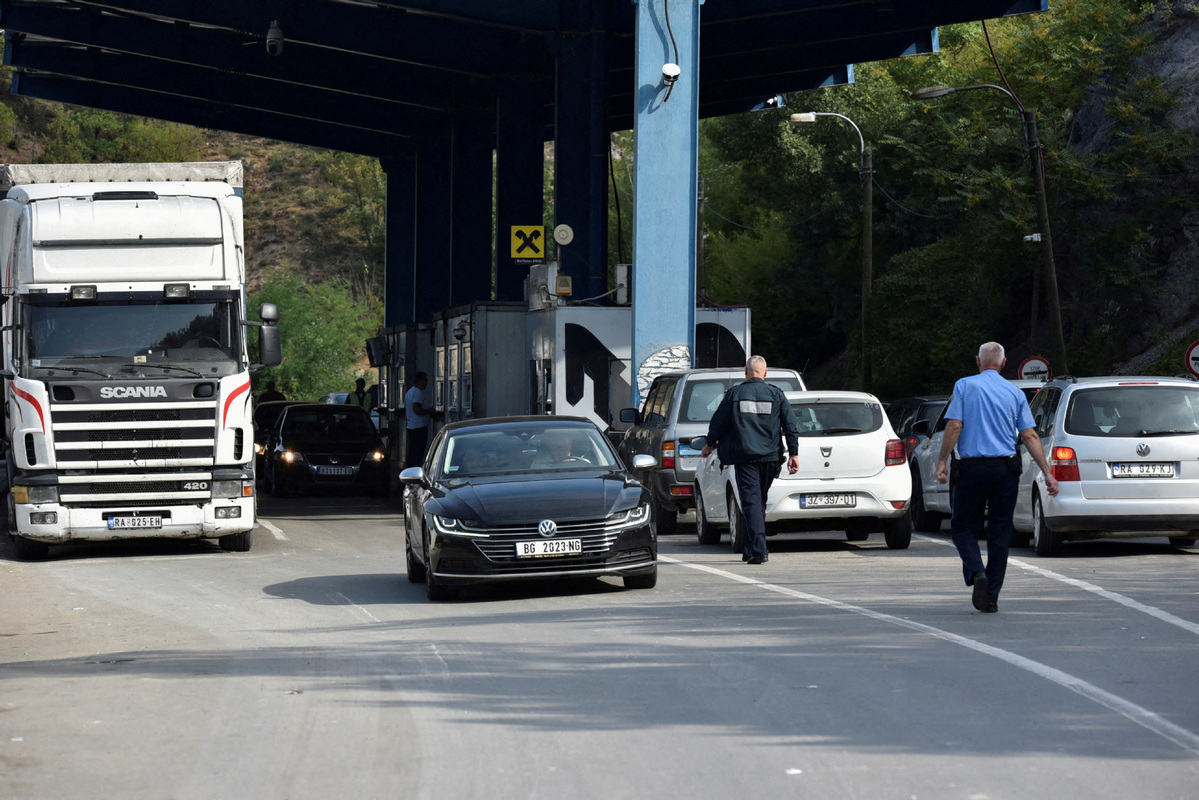
A general view of the border crossing between Kosovo and Serbia in Jarinje, Kosovo, Sept 1, 2022. (Photo: Agencies)
In a further sign of the worsening relations between Serbia and Kosovo, Serbian Defense Minister Milos Vucevic said on Monday that Serbian armed forces had been put on the highest level of combat readiness.
The escalating standoff between Serbia and Kosovo does not bode well for Europe, which is already reeling from the conflict between Russia and Ukraine and its consequences, ranging from a severe energy crisis to skyrocketing inflation.
Any mishandling of the current situation could ignite a new powder keg. Northern Kosovo has been on edge since November when hundreds of ethnic Serb workers in the Kosovo police as well as the judicial branch, such as judges and prosecutors, walked off the job protesting a controversial decision to ban Serbs living in Kosovo from using Belgrade-issued license plates, which created a security vacuum in Kosovo.
The situation worsened earlier this month when Serbs, who make up the majority of the population in Northern Kosovo, put up barriers to protest against the arrest of a Serbian former police officer suspected of involvement in attacks against ethnic Albanian police officers. Kosovo sent military and police officers to try to enter Serb areas, while Serbs blocked all thoroughfares, and the situation began to escalate.
On Dec 15, Kosovo applied for European Union membership. At the same time, Serbian President Aleksandar Vucic Vucic asked NATO for permission to deploy up to 1,000 Serbian troops and police officers in Kosovo, as he said it is entitled to do under UN Security Council Resolution 1244 if the "peace and normal life" of local residents is threatened. But NATO subsequently turned down Vucic's request, and several NATO members even issued an ultimatum to Serbia on Sunday demanding that it end the standoff.
Those Western countries, namely the United States, the United Kingdom, France, Germany and Italy, have been motivated to do so because of Belgrade's close ties with Moscow, rather than the merits of the situation. It seems they have not learned the lessons of history.
In the time of the Federal Republic of Yugoslavia, Kosovo was an autonomous province of Serbia, but Albania had a majority population. In 1999, because of ethnic issues, fierce conflicts broke out.
NATO intervened forcefully, and Serbia was forced to surrender after more than 70 days of bombing. In 2008, with the support of the West, Kosovo unilaterally declared independence, which was recognized by major Western countries, but Serbia, Russia and other countries, as well as Spain, Greece, Romania, Slovakia and Cyprus in the European Union, refused to recognize it.
With the Ukraine war continuing to spell trouble for Europe, the ghost of the Kosovo war might be revived and haunt the continent soon. All parties should show greater political wisdom to avoid such a gloomy prospect.


